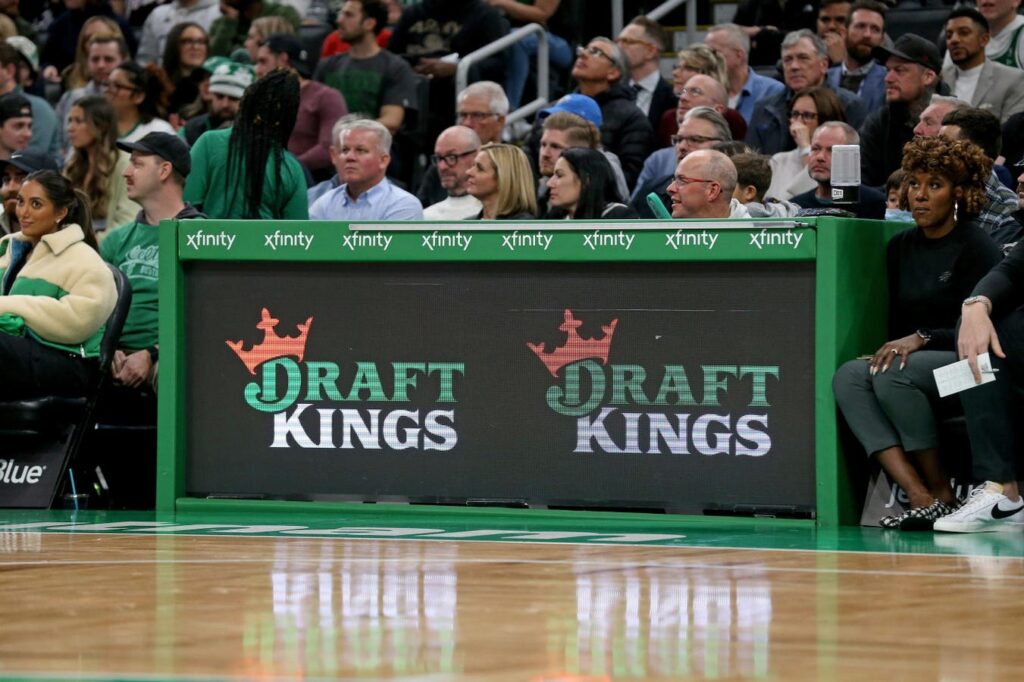Boston, Massachusetts – November 14: DraftKings advertising during the first half of NBA games … [+]
The Illinois House of Representatives has passed an amendment to a bill that, if enacted, would apply a progressive rate structure to the gross receipts tax on sports betting.
Illinois' new sports betting gross receipts tax would have a graduated rate structure, with a minimum tax rate of 20% for businesses with sports betting revenue between $30 million and $50 million and a maximum rate of 40% for businesses with revenue over $200 million.
Illinois is setting a precedent with its new system and seeking to position itself as a model for other states considering legalizing and taxing sports betting. By implementing a graduated tax system, the state will introduce a degree of progressivity into the system. The goal is to maximize state revenue from a rapidly growing industry, and hopefully keep it from disappearing.
While other states have enacted higher tax rates, including New York's top rate of 51% of gross gambling revenues, the graduated tax structure is somewhat novel. This approach allows Illinois to balance the need to secure significant tax revenue amid a state revenue shortfall with maintaining a competitive sports betting market. As states look at the Illinois model, it could serve as a model for other states seeking a similar path.
Other states are already considering raising taxes; for example, New Jersey lawmakers have proposed a bill that would increase the state's 15% online gambling tax and 13% online sports betting tax to a flat 30%.
Allocation of gambling tax revenue
More generally, taxes on sports betting, gambling, tobacco, alcohol, and other entertainment activities are important policy tools for states facing revenue shortfalls. However, taxes on activities that externalize social costs come with an obligation to allocate tax revenues to adequately offset those social costs.
In the case of gambling and sports betting, it is essential that tax revenues are appropriately spent on public health efforts, addiction treatment programs, and education programs that offset the negative externalities associated with more tolerant gambling.
In Illinois, the implementation of a progressive tax structure on sports betting is an exemplary step in balancing growth and regulation, and if the revenue generated is allocated effectively, Illinois can serve as a comprehensive model for other states.
As states consider implementing similar legalization and taxation frameworks, they must focus not only on revenue potential but also on the larger societal impact.


